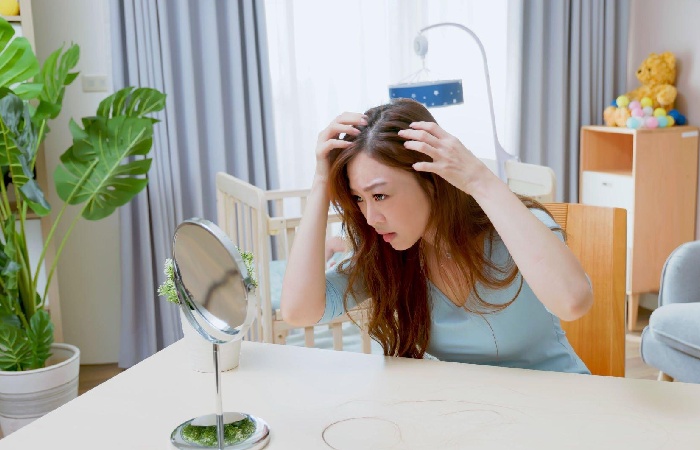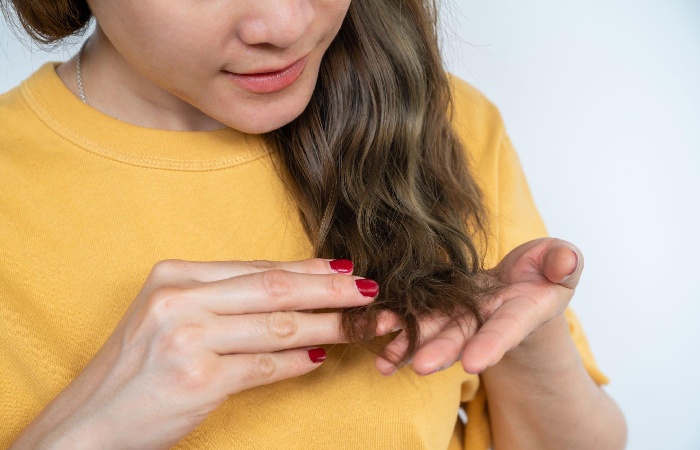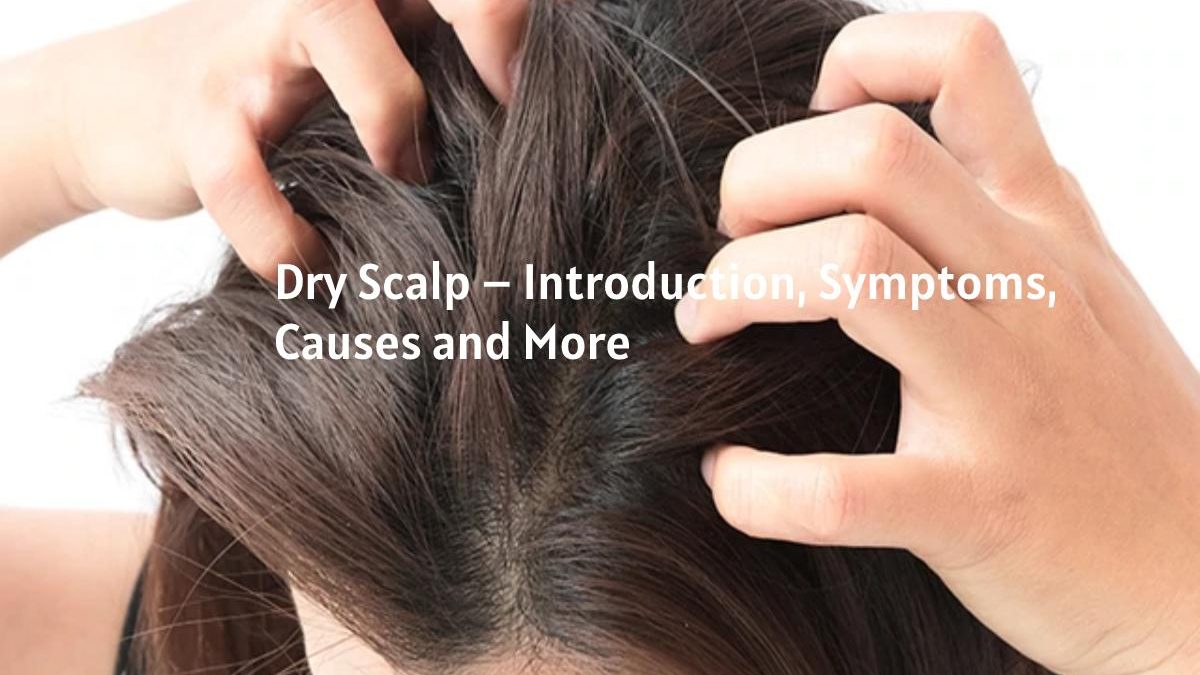Table of Contents
Introduction

A dry scalp is a condition that affects the scalp due to a lack of natural oil secretions or some health problems.
Dry scalps are often associated with a range of local complications in the scalp, such as itching, peeling, and irritability. In addition, people with dry skin are the most likely to develop scalp dehydration.
Symptoms of Dry Scalp
These are the most prominent symptoms that may accompany dry scalp:
- Dry hair.
- Skin itching, the urgent need to do itching of the scalp.
- Noticeable tightening in the scalp area.
- The appearance of skin peels on the scalp.
- Irritation of scalp skin.
Causes of Dry Scalp
Here’s a list of the most prominent possible causes of scalp dehydration:
Eczema
Eczema is a common skin problem that often causes dry scalps and other accompanying symptoms, such as itching, redness, and skin cracks.
Many factors can irritate eczema-affected areas of the skin, including eczema spots on the scalp, such as stress and the use of scented preparations.
Inflammation of the Methylome
This type of skin infection causes overproduction of oils and fats in the scalp, which may be an environment suitable for accumulating dirt, dead skin cells and some types of fungi on the scalp.
This unhealthy environment may also lead to scalp dryness and the appearance of white and greasy crusts on the scalp’s surface.
Clamshell scalp
Scalp psoriasis is an autoimmune disorder in which the body begins to attack the hair follicles in the scalp, which can cause red spots slightly higher than the surface of the scalp skin, often interspersed with silver peels.
Other Reasons
In addition to the skin problems mentioned above, another set of factors may cause scalp dehydration, such as:
Prolonged use of some hair care products rich in harmful chemical compounds.
Follow a poor diet free of the essential nutrients the body needs.
Being in an area whose weather may not suit scalps or weather and season changes.
Excessive hair washing, You should note that the number of recommended hair wash times per week depends on the hair type.
Other factors and causes, such as stress and sensitivity.
Treatment of Dry Scalp

These are some of the treatment options that can be used to relieve dry scalps and improve scalp health:
Apply natural recipes to the scalp
To get rid of dry scalp, apply the following steps:
- Massage the scalp with a natural, moisturizing and nutritious oil, such as olive oil, sesame oil, coconut oil, or argan oil.
- Wash the scalp after 10-60 minutes.
- Use shampoo added to aromatic oils
- Wash your hair with a healthy shampoo and add a few drops of tea tree oil.
Apple Cider Vinegar
To get rid of dry scalps using apple cider vinegar, follow the following steps:
Wipe and massage the scalp using cotton that has been satisfied with water and a little apple cider vinegar.
Wash the scalp after a few minutes. Repeat this process once a week.
Banana Mask
To apply the banana mask to the scalp, follow the following steps:
Mix mashed bananas with 1tpn of yoghurt and a few drops of coconut oil on the scalp.
Wash the catcher after 20 minutes.
Cactus Gel
For the benefits of cactus gel in getting rid of dry scalp, follow the following steps:
Massage the scalp with a blend of cactus gel and a few drops of tea tree oil and rose water.
Wash the scalp after 60 minutes.
Use Vitamins and Minerals
Vitamins and minerals can be used in several different ways to relieve and treat dry scalps, as follows:
Take some supplements, or dietary sources rich in particular nutrients whose low levels in the body may have been the cause of scalp dehydration, particularly the nutrients: vitamin b6, vitamin b12, zinc, selenium and omega-3.
Massage the scalp with vitamin e, rub the scalp with the contents of 5-10 capsules of vitamin e, and wash the scalp after an hour, but note that this recipe may not suit everyone and should consult your doctor before following it.
Undergo Medical Treatments
If the cause of dry scalp is a skin problem, it is possible to treat this problem to help moisturize and treat dry scalp, and these are some of the treatment options available:
- Anti-dandruff shampoo.
- Topical steroid ointments.
Also Read: Weight Stability – Introduction, Reasons and More


